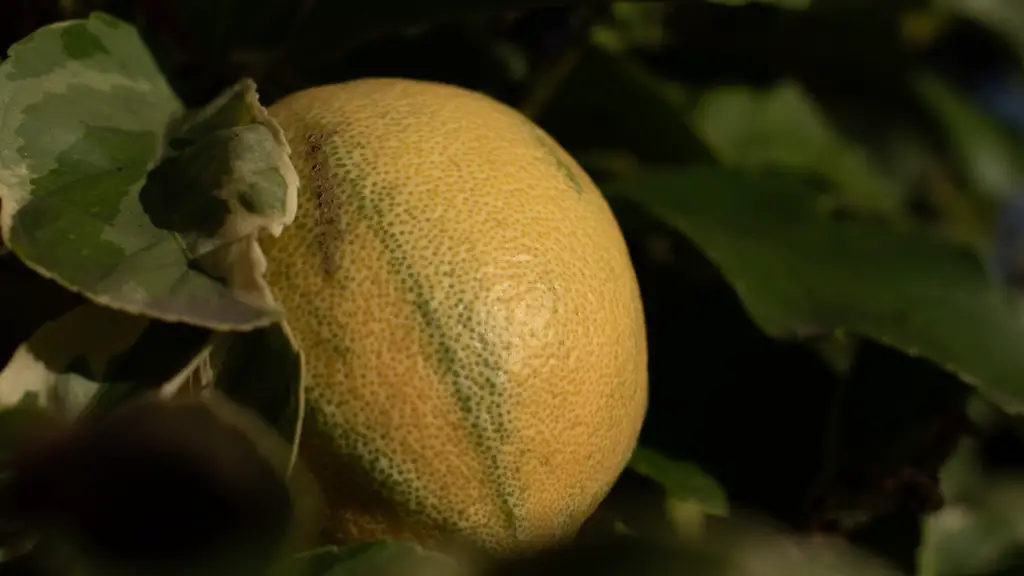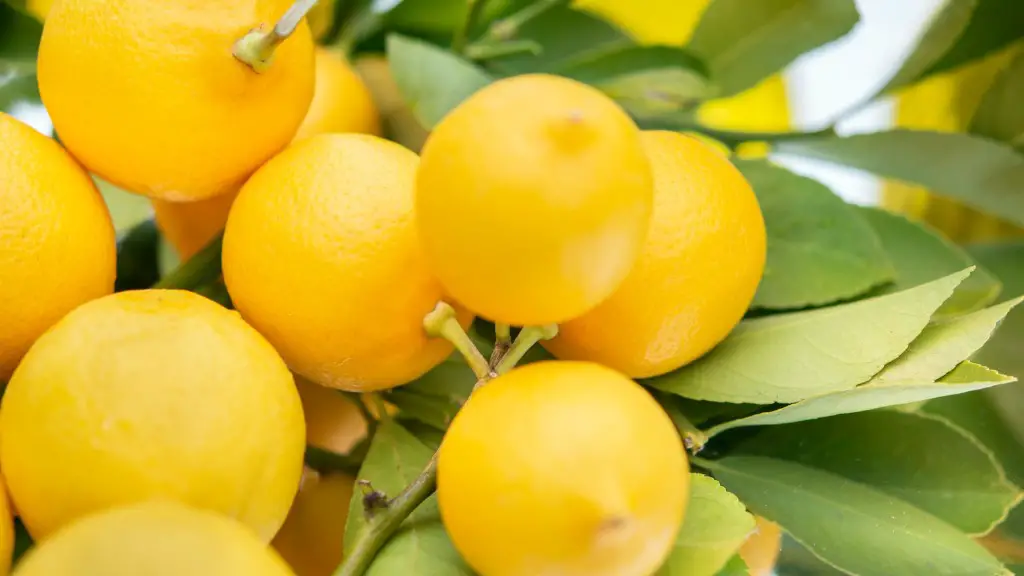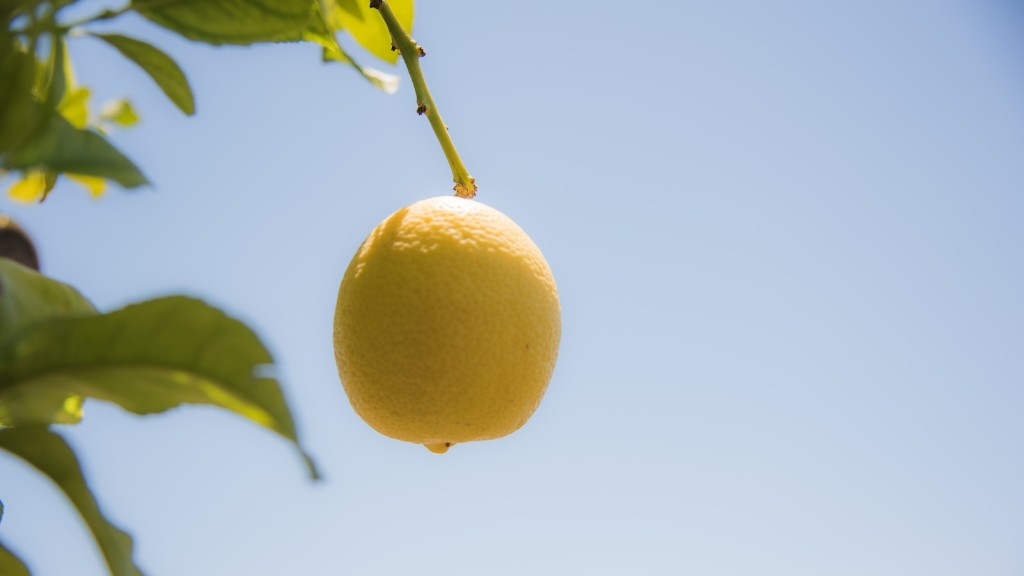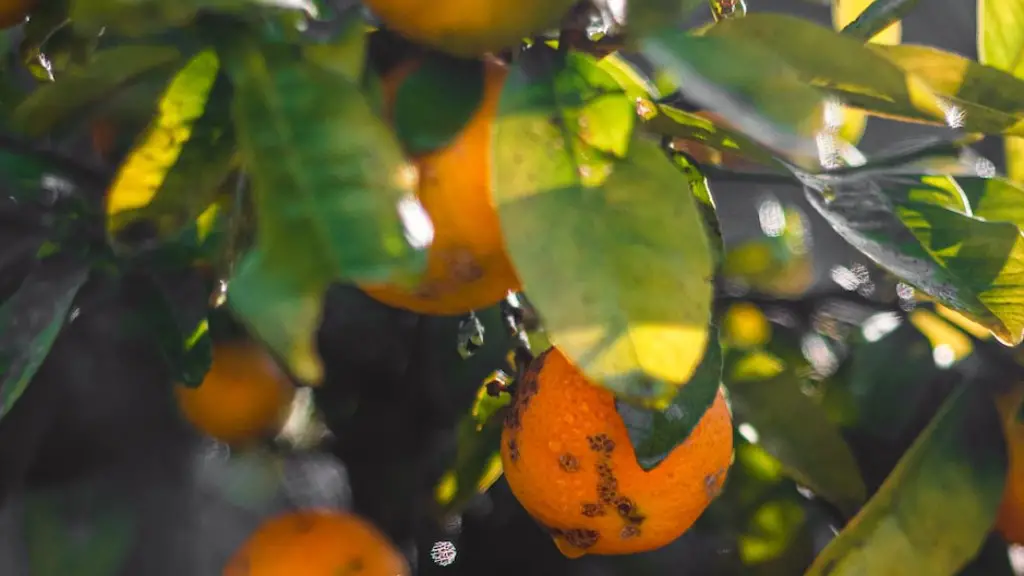Growing a lemon tree is a very rewarding endeavor, and it can be surprisingly easy. With some basic care and knowledge, you can have a beautiful lemon tree that can produce delicious, ripe lemons year round. Here are some tips to get you started.
Start with a healthy sapling. When buying a lemon tree, pick one that has healthy leaves, is green and vibrant in color, and has a good root system. Make sure to check for bugs or other pests on the leaves, as these can be difficult to get rid of once you bring the tree home.
Find the right spot for your lemon tree. Lemons need plenty of sunlight, so pick an area of your yard or patio that receives at least 6 hours of direct sunlight a day. Your tree should also be in an area that is not prone to frost or freezing temperatures, as this will kill your lemon blossoms and potentially your entire tree.
Invest in good soil. Lemons thrive in acidic soil, so if the soil in your area is not the best, consider purchasing potting soil or fertilizer specifically designed for citrus trees. The soil should be well drained and be amended with organic matter, such as compost or peat moss, to keep it rich and loose.
Keep your trees well-watered. The soil should remain moist at all times, but not soaking wet. Water your lemon tree at least once a week, or more often in extreme heat. Make sure that the soil is evenly moist throughout, and not just wet on top. Over-watering will cause the leaves and fruit of your lemon tree to drop off.
Prune your lemon tree. Pruning your lemon tree is essential for it to remain healthy. Prune it regularly in order to promote healthy new growth and remove any dead or damaged branches. Also, pruning your lemon tree will help you to keep it a manageable size.
Fertilize your lemon tree. Lemon trees need to be fertilized on a regular basis. Use a fertilizer specifically designed for citrus plants and follow the instructions on the package. Make sure to use the fertilizer in early spring and again in late summer, so that your tree can get the nutrients it needs to keep producing beautiful and delicious lemons.
Feeding Your Lemon Tree
In order to keep your lemon tree robust and healthy, you need to make sure that it is getting the nutrients it needs. Organic fertilizer is preferable for citrus trees, and it should be applied at the beginning of spring and again at the end of summer.
Organic fertilizer is made from natural sources and is not laden with chemicals. It is a much better option for your lemon tree, as it will provide it with the essential nutrients it needs to survive and thrive. You can find organic fertilizer in most garden stores, or you can make your own with a combination of fish emulsion, kelp extract, and compost.
It is also important to remember to mulch your lemon tree. Mulch helps to keep the soil around your lemon tree moist, and it also helps to keep weeds out. Organic mulch, such as grass clippings or leaves, is the best choice for your lemon tree as it will break down over time and provide your tree with fresh nutrients.
In addition to feeding your lemon tree, you may also want to consider using a fungicide or insecticide to keep your lemon tree free from pests. You should be very careful when using these products and always follow the instructions on the package. Be sure to check with your local gardening center for the best product for your specific tree.
Finally, one of the best things you can do for your lemon tree is to make sure it isn’t getting too much sun or too much shade. If your lemon tree isn’t getting enough sun, it can lead to stunted growth and fewer or fewer lemons. If it is getting too much sun, the fruit may become bitter and the flowers may not bloom.
Pruning Your Lemon Tree
Pruning your lemon tree is important if you want it to remain healthy and productive. Pruning helps to promote new growth and can remove any dead or damaged branches. Pruning should be done regularly and can help to keep your tree a manageable size.
When pruning your lemon tree, you should aim to remove any branches that are dead, diseased, or damaged. These branches can be removed easily with a pair of sharp lopping shears, and they should be disposed of away from your yard. You should also prune away any branches that are crowding out other branches, as this can inhibit the growth of your tree.
In addition, you should also prune away any branches that are growing inwards or any that are crossing over each other. These branches can be pruned away easily, and it will help to promote a better-shaped tree. You should also prune away any weak or spindly branches, as these can be an indicator of disease or poor health.
When pruning your lemon tree, it is important to use sharp tools and to prune away a branch to the main branch or branch spur. You should also make sure that you are not leaving any stubs, as these can lead to disease and rot in your tree. Finally, you should use sterile blades or scissors and clean them after each use in order to avoid spreading any diseases.
Harvesting Your Lemons
Harvesting your lemon tree can be a rewarding and delicious experience. You can begin harvesting your lemons once they are yellow and feel slightly soft. You should pick them using sharp scissors or garden shears, and you want to make sure to leave a little bit of stem or the calyx attached to each lemon.
Once you have harvested your lemons, you can use them in a variety of recipes. Lemon juice is excellent in dressings, marinades, and sauces. Lemon zest can be added to salads, baked goods, and soups, and it can also help to infuse tea and other beverages with a bright and tangy flavor.
You can also use lemons for decorative purposes. Lemons can be sliced and added to flower arrangements, and the peels can be dried and used to make potpourri or scented sachets. Lemons can be used to make simple syrup or infused into oils and vinegars, adding a hint of zing to any dish.
Finally, you can also make limoncello from your lemons. Limoncello is a delicious Italian liqueur made with distilled alcohol and lemons that has been enjoyed for centuries. You can make your own limoncello at home with just a few simple ingredients, such as lemons, sugar, and vodka.
Caring For Your Lemon Tree
If you want your lemon tree to remain healthy and productive, it is important to give it the care it needs. Regular care and maintenance are essential for keeping your lemon tree healthy and producing delicious fruit. Here are some tips for caring for your lemon tree.
It is important to water your lemon tree regularly. The soil should remain evenly moist, but not overly wet. Make sure to water your tree deeply, but not too often. Over-watering can cause the leaves and fruit of your lemon tree to drop off.
You should also fertilize your lemon tree on a regular basis. Use a fertilizer specifically designed for citrus plants and follow the instructions on the package. Fertilizer should be applied at the beginning of spring and again at the end of summer so that your tree can get the necessary nutrients.
Finally, it is important to cover your lemon tree in the winter months. Frost and extreme cold temperatures can damage your lemon blossoms, so make sure to cover your tree with blankets or plastic sheets to protect it from the elements. Doing this will help to ensure that your tree will have a successful fruiting season.
Disease & Pest Control
Unfortunately, your lemon tree is prone to disease and pests. Common pests that your lemon tree may encounter are aphids, mealybugs, scale insects, and spider mites. These pests can cause damage to both the leaves and fruit of your lemon tree, and it is important to take steps to control them.
One of the best ways to control pests on your lemon tree is to attract beneficial insects. Ladybugs, lacewings, and other predatory insects feed on pests and can help to keep them under control. You can also use a horticultural oil or neem oil to control pests on your lemon tree, and these are available at most garden stores.
In addition, it is important to be aware of common diseases such as Alternaria, Phytophthora, and Cercospora, which can all cause damage to your lemon tree. If your tree shows any signs of disease, you should contact your local garden center for advice on the best treatment for the problem.
Finally, if your lemon tree is failing to produce lemons, it may be due to a lack of nutrients or environmental stress. If this is the case, you should try to identify the cause and take steps to correct it. Adding fertilizer and mulch to the soil, and making sure your tree is getting the right amount of sunlight, can all help to ensure your lemon tree remains healthy and productive.




